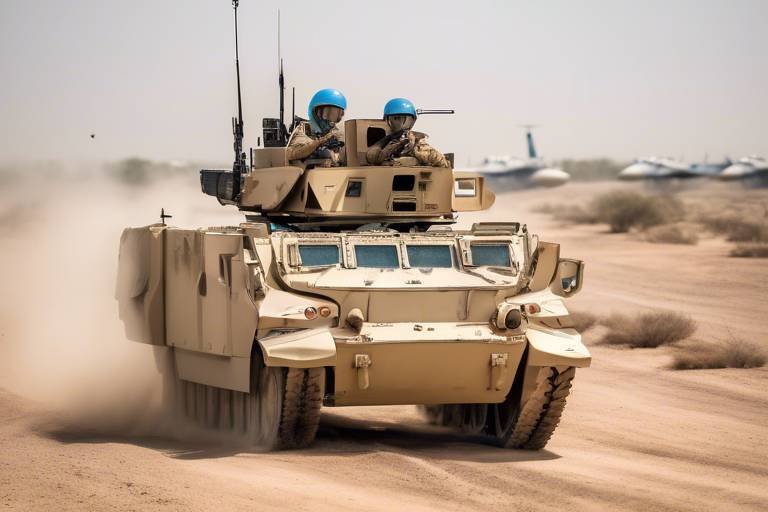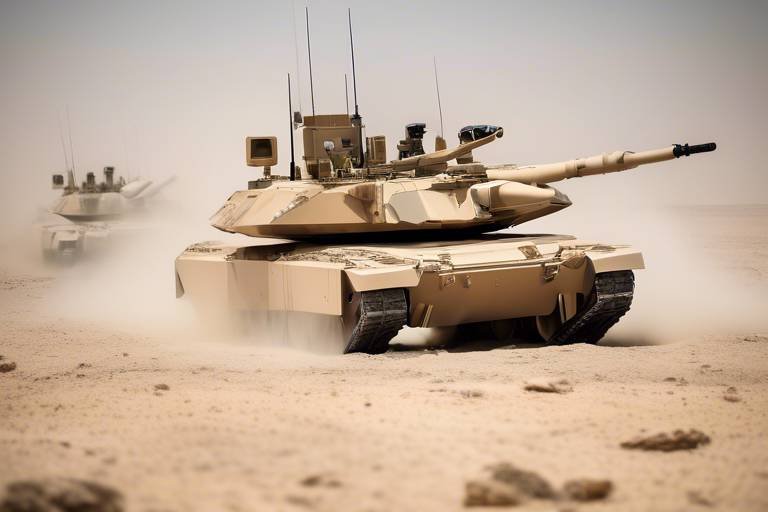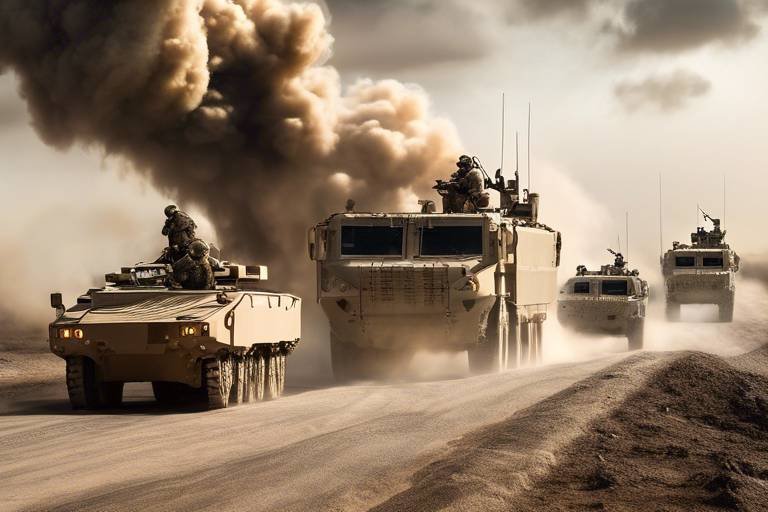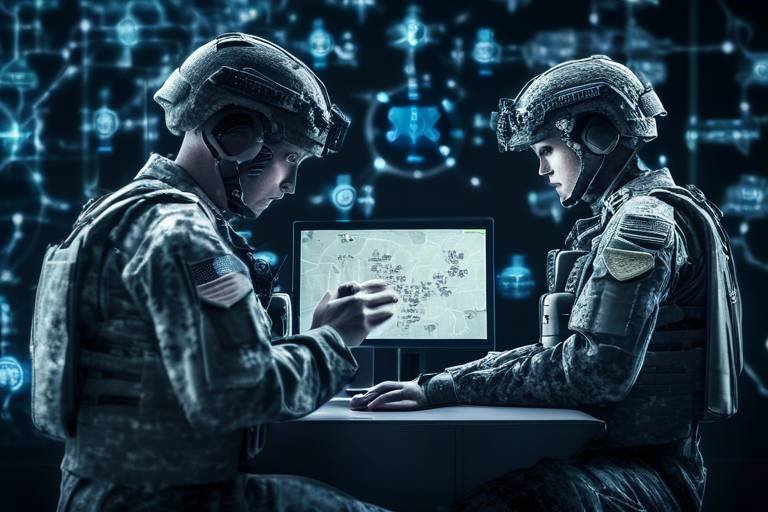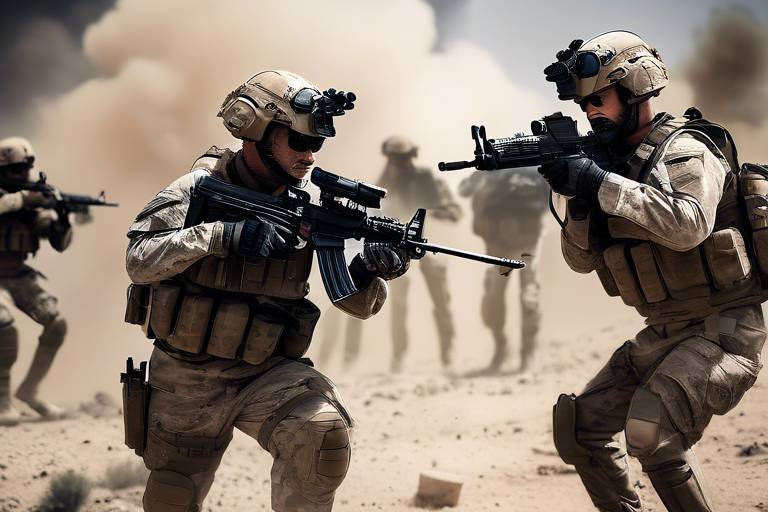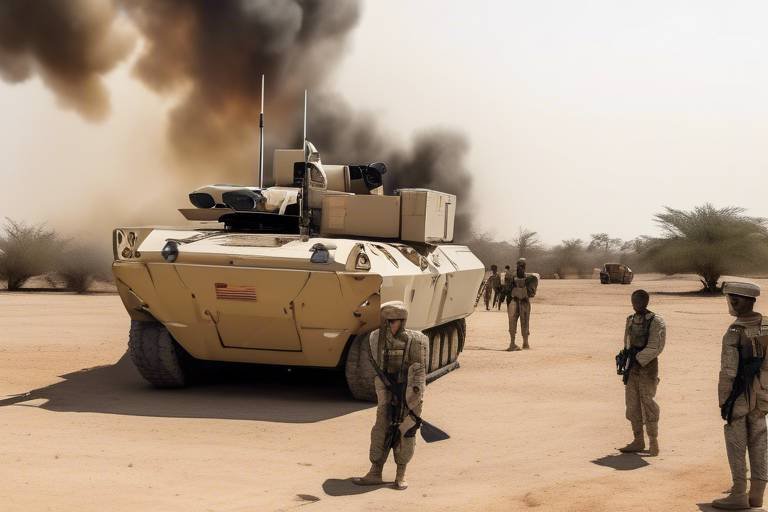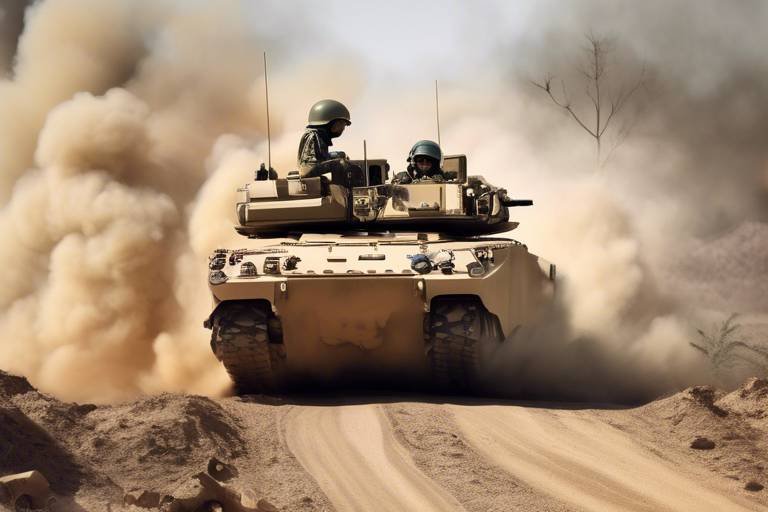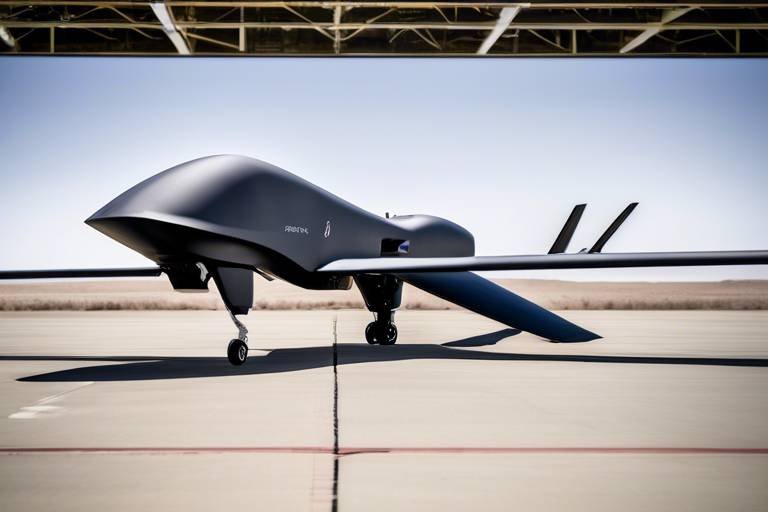The Future of Defense Technologies in a Changing World
In a world that is constantly evolving, the landscape of defense technologies is undergoing a remarkable transformation. As we navigate through the complexities of geopolitical tensions, economic uncertainties, and rapid technological advancements, it becomes increasingly clear that the future of defense is not just about military might but also about innovation and adaptability. How are nations preparing for these changes? The answer lies in the integration of cutting-edge technologies that promise to redefine what it means to protect national security. From artificial intelligence to quantum computing, the tools of modern warfare are becoming more sophisticated, and their implications are profound.
Imagine a battlefield where decisions are made in milliseconds, not minutes, thanks to the power of artificial intelligence. AI is not just a buzzword; it's a game-changer that allows for real-time data analysis and strategic decision-making. As we delve deeper into this article, we'll explore how these technologies are not only enhancing military capabilities but also posing new challenges that require thoughtful consideration. The question we must ask ourselves is, are we ready for the ethical dilemmas that come with such advancements?
Moreover, as we embrace these innovations, we must also acknowledge the growing threats that accompany them. Cybersecurity has emerged as a critical concern, especially as defense systems become increasingly digitized. The stakes are higher than ever, and safeguarding military networks and sensitive data is paramount. This article will shed light on the strategies being employed to counter these cyber threats and ensure the integrity of national security.
In addition to technological advancements, international collaborations are becoming vital in addressing global security challenges. Nations are recognizing that no single country can tackle these issues alone. The future of defense technologies lies in joint military operations and shared intelligence, paving the way for a more secure and cooperative global landscape. But with these collaborations come questions about sovereignty and trust. How do nations balance their interests while working together for a common goal?
As we journey through this exploration of defense technologies, we will also confront the ethical considerations that arise. The integration of advanced technologies raises moral questions that cannot be ignored. For instance, the development of autonomous weapons systems presents significant dilemmas regarding accountability and the potential for misuse. How do we ensure that these powerful tools are used responsibly?
Finally, we must consider the impact of surveillance technologies on civil liberties. As nations ramp up their defense capabilities, the balance between national security and individual privacy rights becomes increasingly tenuous. The implications of these advancements extend far beyond the battlefield and into our everyday lives. Are we willing to sacrifice our privacy for the sake of security? This article aims to not only inform but also provoke thought about the future we are shaping with these technologies.
- What are the key emerging technologies in defense? Innovations such as AI, robotics, and quantum computing are at the forefront of transforming military capabilities.
- How does cybersecurity affect national defense? As defense systems become more digitized, they are increasingly vulnerable to cyberattacks, necessitating robust cybersecurity measures.
- What ethical concerns are associated with autonomous weapons? The use of autonomous weapons raises questions about accountability and the moral implications of machine-led warfare.
- How do international collaborations influence defense technologies? Collaborative efforts among nations enhance security by sharing intelligence and resources, but they also raise concerns about sovereignty.
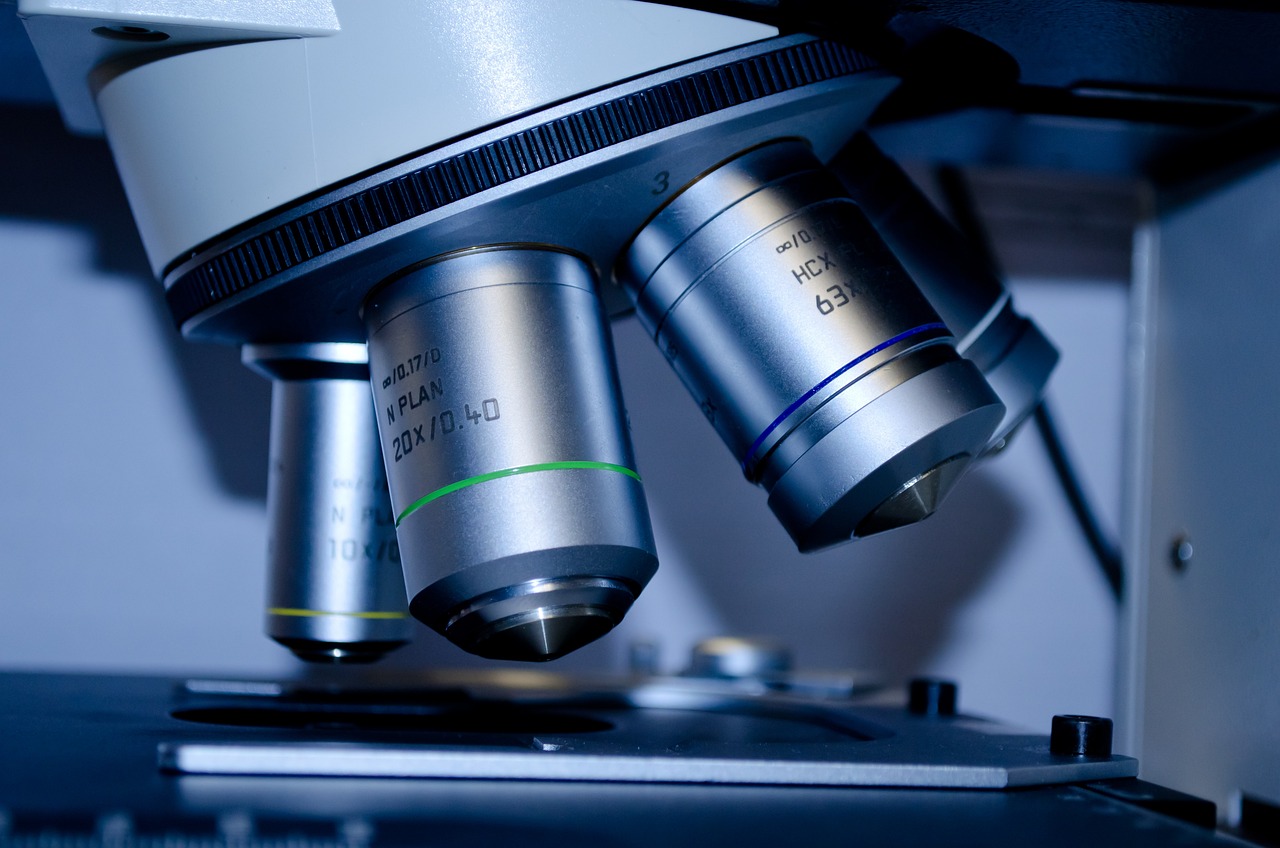
Emerging Technologies in Defense
In today's world, the landscape of defense is being reshaped by a myriad of emerging technologies that promise to enhance military capabilities and operational efficiency. Innovations such as artificial intelligence (AI), robotics, and quantum computing are not just buzzwords; they are becoming integral to how nations prepare for and respond to threats. Imagine a battlefield where decisions are made in real-time by machines that can process data faster than any human could. This is not science fiction; it's the reality of modern warfare.
Artificial intelligence is at the forefront of this transformation. By leveraging machine learning algorithms, defense organizations can analyze vast amounts of data, identifying patterns and predicting potential threats before they materialize. For instance, AI can be utilized to enhance situational awareness by processing intelligence reports, satellite imagery, and sensor data, allowing military leaders to make informed decisions swiftly. This capability not only improves operational readiness but also helps in resource allocation, ensuring that troops are deployed where they are needed most.
Robotics, on the other hand, introduces a new dimension to defense strategies. With the development of unmanned aerial vehicles (UAVs) and ground robots, military forces can conduct surveillance and reconnaissance missions with minimal risk to human life. These machines can operate in hostile environments, gathering crucial intelligence without putting soldiers in harm's way. Moreover, the use of robotics extends to logistics, where automated systems can transport supplies and equipment, streamlining operations and reducing the burden on human personnel.
Quantum computing is another game-changer in the defense sector. With its ability to perform complex calculations at unprecedented speeds, quantum computers can revolutionize cryptography, making military communications nearly unbreakable. This technology can also enhance the capabilities of AI systems, allowing for more sophisticated data analysis and faster decision-making processes. As nations race to develop quantum technologies, the implications for national security are profound, as those who harness this power will have a significant strategic advantage.
However, the integration of these technologies into military strategies is not without its challenges. As we embrace the potential of AI and robotics, we must also consider the ethical implications of their use. For instance, how do we ensure accountability when autonomous systems make life-and-death decisions? And what safeguards can be implemented to prevent the misuse of these powerful technologies? These questions are critical as we navigate the future of defense in an increasingly complex global environment.
In conclusion, the emergence of AI, robotics, and quantum computing is revolutionizing defense technologies, offering new capabilities that enhance national security. As we stand on the brink of this technological revolution, it is essential for military leaders, policymakers, and society as a whole to engage in discussions about the implications of these advancements. The future of defense is not just about adopting new tools; it’s about understanding the responsibilities that come with them.
- What role does AI play in modern defense? AI enhances decision-making, situational awareness, and predictive capabilities in military operations.
- How are robotics changing military strategies? Robotics allow for safer reconnaissance and logistics operations, minimizing the risk to human soldiers.
- What is quantum computing's impact on defense? Quantum computing can revolutionize cryptography and data analysis, providing a strategic advantage in military communications.
- What ethical concerns arise from using autonomous weapons? The use of autonomous weapons raises questions about accountability and the moral implications of machines making life-and-death decisions.

Cybersecurity Challenges
As we leap into an era where defense systems are increasingly digitized, the cybersecurity landscape becomes a battleground of its own. The rapid integration of technology into military operations has opened up new frontiers, but it has also introduced a plethora of vulnerabilities. Imagine a fortress with walls that can be breached not just by physical attacks but also by invisible forces lurking in the digital realm. This is the reality we face today, and it’s not just a minor inconvenience; it's a significant threat to national security.
With the rise of sophisticated cyber threats, military networks and sensitive data are constantly under siege. The stakes are incredibly high, as a successful cyberattack could lead to catastrophic consequences, including the disruption of critical defense operations or the theft of classified information. As a result, safeguarding these assets has never been more crucial. The challenge lies not only in defending against attacks but also in understanding the ever-evolving tactics employed by cyber adversaries. It’s like playing a game of chess where your opponent keeps changing the rules!
To effectively combat these challenges, defense organizations are adopting a multi-layered approach to cybersecurity. This includes not just robust firewalls and encryption techniques but also a focus on employee training to recognize phishing attempts and other common cyber threats. After all, the weakest link in any security system is often human error. Therefore, investing in continuous education and awareness programs is essential. Here are some key strategies being implemented:
- Regular Security Audits: Conducting frequent assessments of security protocols to identify potential vulnerabilities.
- Incident Response Plans: Developing and refining plans to respond swiftly to cyber incidents.
- Collaboration with Cybersecurity Experts: Partnering with specialized firms to enhance defensive measures.
Moreover, the increasing complexity of cyber threats necessitates the use of advanced technologies. For instance, artificial intelligence (AI) is being harnessed to analyze data patterns and detect anomalies that could signify a breach. This leads us to the next vital aspect of cybersecurity: the role of AI in cyber defense.
Artificial intelligence is not just a buzzword; it’s a game-changer in the realm of cybersecurity. By automating threat detection and response, AI can significantly reduce the time it takes to identify and neutralize cyber threats. Imagine having a vigilant guard who never sleeps, constantly monitoring the digital landscape for any signs of intrusion. AI systems can analyze vast amounts of data far quicker than human analysts, allowing for real-time responses to potential threats.
However, while AI offers remarkable advantages, it also brings its own set of challenges. For instance, reliance on AI systems can lead to complacency among human operators. If a machine is handling most of the monitoring, there’s a risk that personnel may not stay as vigilant as they should be. It’s essential to strike a balance between leveraging technology and maintaining human oversight.
Another critical component of modern cybersecurity is predictive analytics. By utilizing historical data, defense organizations can forecast potential cyber threats and proactively implement measures to mitigate risks. Think of it as having a crystal ball that not only shows you what’s coming but also helps you prepare for it. This approach enables military strategists to stay one step ahead of cyber adversaries, transforming reactive measures into proactive strategies.
Automated response systems are also gaining traction in defense operations. These systems can react to cyber incidents in real-time, significantly reducing the window of vulnerability. However, while automation can enhance efficiency, it’s crucial to recognize its limitations. Automated systems may not always understand the context of a cyber threat, leading to potential misinterpretations and unintended consequences. Therefore, a hybrid approach that combines automation with human judgment is often recommended.
In conclusion, as defense technologies continue to evolve, so too do the challenges associated with cybersecurity. The landscape is complex and fraught with danger, but with the right strategies and technologies in place, it is possible to safeguard national security in this digital age. The key lies in staying informed, adaptable, and proactive in the face of ever-changing threats.
- What are the main cybersecurity challenges faced by defense organizations?
Defense organizations face challenges such as sophisticated cyber threats, human error, and the need for constant updates to security protocols. - How does AI improve cybersecurity in defense?
AI enhances cybersecurity by automating threat detection and response, analyzing large datasets for anomalies, and improving overall efficiency. - What role does predictive analytics play in cybersecurity?
Predictive analytics helps forecast potential cyber threats based on historical data, allowing organizations to implement proactive measures.

AI in Cyber Defense
In today's digital battleground, the role of artificial intelligence (AI) in cyber defense has become increasingly pivotal. Just imagine a world where machines can not only detect intrusions but also predict them before they occur. That's the power AI brings to the table, transforming traditional defense mechanisms into proactive shields against cyber threats. With the ever-evolving landscape of cyber warfare, the integration of AI into military strategies is not just an option; it’s a necessity.
AI technologies are designed to analyze vast amounts of data at lightning speed, enabling defense organizations to identify patterns and anomalies that human analysts might miss. This capability is crucial because, in the realm of cybersecurity, every second counts. When a potential threat is detected, AI systems can initiate immediate responses, minimizing damage and protecting sensitive information. For instance, machine learning algorithms can continuously learn from new data, adapting their responses to evolving threats, much like how a seasoned chess player anticipates an opponent's moves.
Moreover, AI in cyber defense is not limited to just detection and response. It also plays a significant role in threat intelligence. By aggregating information from various sources, AI can provide insights into emerging threats, helping military strategists stay one step ahead of adversaries. This proactive approach is akin to having a crystal ball that reveals the future of cyber threats, allowing defense forces to prepare and fortify their systems accordingly.
However, while the benefits of AI in cyber defense are significant, there are also challenges to consider. One major concern is the potential for false positives. AI systems might flag benign activities as threats, leading to unnecessary panic and resource allocation. Additionally, the reliance on AI raises questions about accountability. If an AI system mistakenly identifies a cyber threat and initiates a countermeasure that results in collateral damage, who is held responsible? These ethical dilemmas underscore the importance of developing robust frameworks to govern AI deployment in military contexts.
To illustrate the impact of AI in cyber defense, let’s take a look at some key applications:
| Application | Description |
|---|---|
| Threat Detection | AI systems analyze network traffic to identify unusual patterns that may indicate a cyber attack. |
| Incident Response | Automated systems can respond to threats in real-time, significantly reducing response times. |
| Vulnerability Assessment | AI tools can scan systems for vulnerabilities, providing recommendations for patches and updates. |
As we move forward, the collaboration between AI technologies and human intelligence will be crucial. While AI can handle the heavy lifting of data analysis and threat detection, human oversight is essential to make nuanced decisions that require ethical considerations and strategic thinking. The future of cyber defense lies in a harmonious blend of human intuition and AI efficiency, creating a formidable force against cyber threats.
- What is the primary role of AI in cyber defense?
AI is primarily used for detecting and responding to cyber threats quickly, analyzing data for patterns, and providing threat intelligence. - Can AI systems make mistakes in identifying threats?
Yes, AI can produce false positives, flagging non-threatening activities as potential threats, which can lead to unnecessary alarm. - How does AI improve incident response times?
AI systems can automate responses to detected threats, significantly reducing the time it takes to react compared to manual processes. - What ethical concerns are associated with AI in military applications?
Ethical concerns include accountability for AI decisions, the potential for misuse, and the balance between security and privacy.
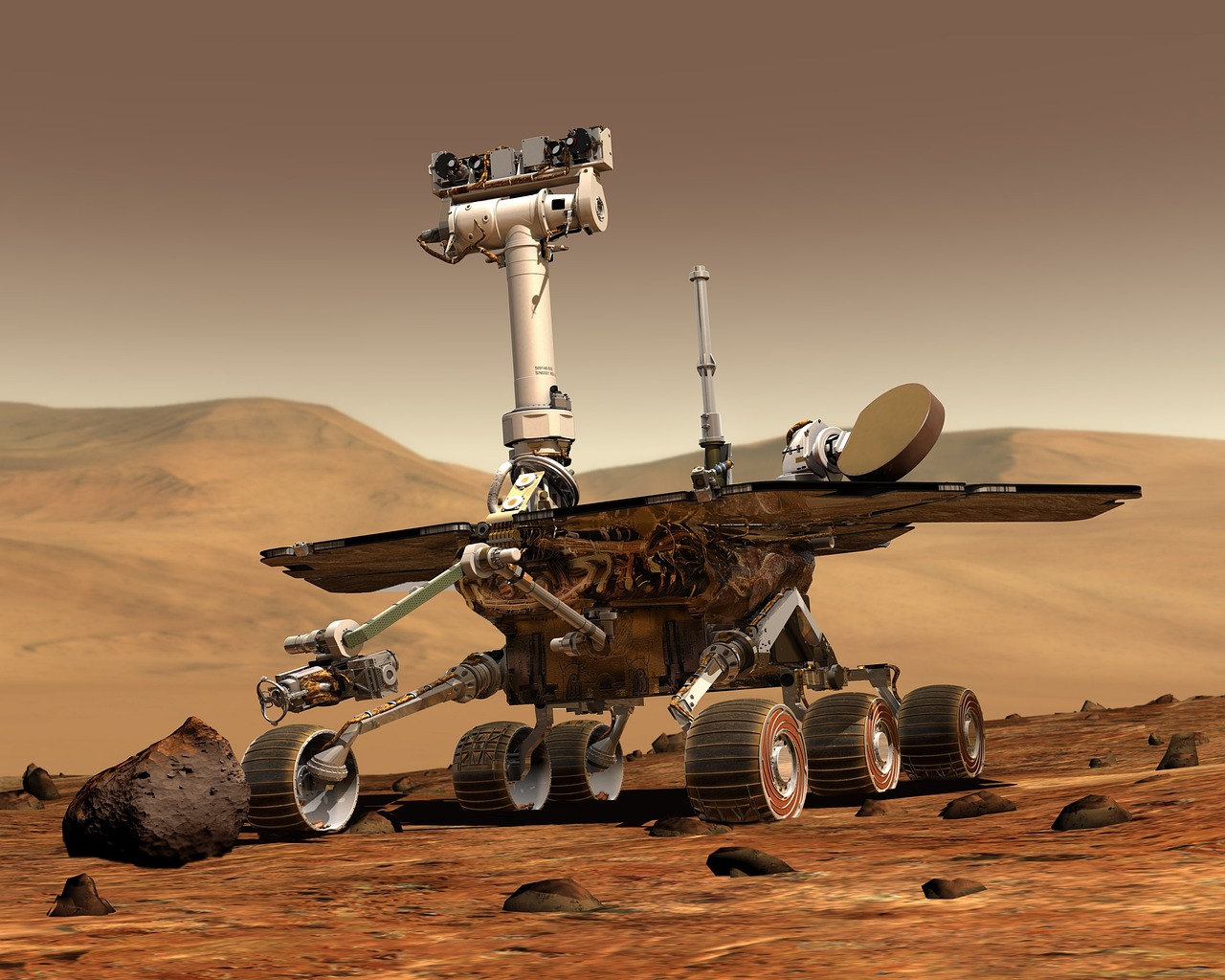
Predictive Analytics
In the realm of defense technologies, is emerging as a game-changer, offering a proactive approach to identifying and mitigating potential cyber threats. By leveraging vast amounts of historical data, defense organizations can forecast potential vulnerabilities and anticipate adversarial actions. Imagine having a crystal ball that not only reveals what threats might be lurking around the corner but also provides insights into how to counteract them. This is the essence of predictive analytics in defense.
The process begins with the collection of data from various sources, including past cyber incidents, threat intelligence reports, and even social media trends. This data is then analyzed using sophisticated algorithms that can identify patterns and correlations. For instance, if a particular type of attack has been successful against similar organizations, predictive analytics can highlight this risk, enabling defense teams to bolster their defenses proactively. The integration of machine learning further enhances these capabilities, allowing systems to continuously learn and improve from new data inputs.
To illustrate the impact of predictive analytics, consider the following
| Benefit | Description |
|---|---|
| Threat Anticipation | Identifies potential threats before they materialize, allowing for preemptive measures. |
| Resource Allocation | Helps in prioritizing resources towards the most vulnerable areas based on predictive insights. |
| Incident Response | Facilitates quicker response times by providing actionable intelligence during a cyber incident. |
By utilizing predictive analytics, military organizations can transform their approach to cybersecurity from a reactive stance to a proactive one. This shift not only saves resources but also enhances overall national security. The ability to foresee potential threats allows for a more strategic deployment of defense mechanisms, ensuring that military forces are always one step ahead of cyber adversaries.
However, it's essential to recognize that while predictive analytics offers significant advantages, it is not foolproof. The accuracy of predictions heavily relies on the quality and quantity of data available. Moreover, as cyber threats evolve, so too must the algorithms and models used to predict them. This ongoing need for adaptation underscores the importance of continuous investment in both technology and skilled personnel capable of interpreting and acting on predictive insights.
In conclusion, predictive analytics stands at the forefront of modern defense strategies, making it an invaluable tool in the ongoing battle against cyber threats. Its ability to forecast potential risks and inform strategic decisions is reshaping how military organizations operate in an increasingly complex digital landscape.
- What is predictive analytics? - Predictive analytics involves using historical data and algorithms to forecast potential future events, particularly in the context of cybersecurity.
- How does predictive analytics enhance cybersecurity? - By anticipating potential threats and vulnerabilities, predictive analytics allows defense organizations to take proactive measures to mitigate risks.
- Are there limitations to predictive analytics? - Yes, the accuracy of predictions depends on the quality of data and the adaptability of the algorithms used to analyze that data.

Automated Response Systems
In today's fast-paced digital battlefield, the need for speed and efficiency in responding to cyber threats has never been more critical. Automated response systems are emerging as a game changer in the realm of defense technologies, offering solutions that can react to incidents in real-time, often faster than any human could. Imagine a scenario where a cyberattack is detected—within milliseconds, an automated system can initiate a countermeasure, isolating affected networks and mitigating potential damage. This level of responsiveness could mean the difference between a minor incident and a catastrophic breach.
However, while the advantages of automated response systems are clear, there are also significant limitations and challenges that must be addressed. For instance, these systems rely heavily on algorithms and predefined rules, which can sometimes lead to false positives. This means that legitimate actions may be mistakenly flagged as threats, causing unnecessary disruptions. Additionally, the sophistication of cyber threats is continually evolving, and automated systems must be regularly updated to keep pace. This creates a substantial burden on defense organizations, which must balance the need for automation with the necessity of maintaining human oversight.
Moreover, the implementation of automated response systems raises important questions about accountability. When a system autonomously decides to take action, who is responsible for that decision? Is it the developers of the software, the military command, or the operators overseeing the system? These questions are not just theoretical; they have real implications for military operations and international law.
To illustrate the workings of automated response systems in defense, consider the following table:
| Feature | Description |
|---|---|
| Real-Time Monitoring | Continuously analyzes network traffic for anomalies. |
| Threat Identification | Uses machine learning to identify potential threats based on historical data. |
| Automated Mitigation | Initiates predefined responses to contain and neutralize threats. |
| Reporting and Analysis | Generates reports for human analysts to review and refine response strategies. |
In conclusion, while automated response systems present an exciting frontier in defense technology, they also necessitate a careful examination of their implications. The balance between leveraging automation for enhanced security and ensuring that human judgment remains a part of the decision-making process is crucial. As we continue to innovate, it is vital to keep these considerations at the forefront of our discussions about the future of defense technologies.
- What are automated response systems? Automated response systems are technologies designed to react to cyber threats in real-time, often without human intervention.
- What are the benefits of using automated response systems? They provide faster response times, can handle large volumes of data, and help mitigate potential damage from cyberattacks.
- What are the limitations of these systems? They can produce false positives and require regular updates to adapt to new threats, which can be resource-intensive.
- Who is responsible for decisions made by automated systems? Accountability can be complex, involving developers, military command, and operators, raising important ethical considerations.
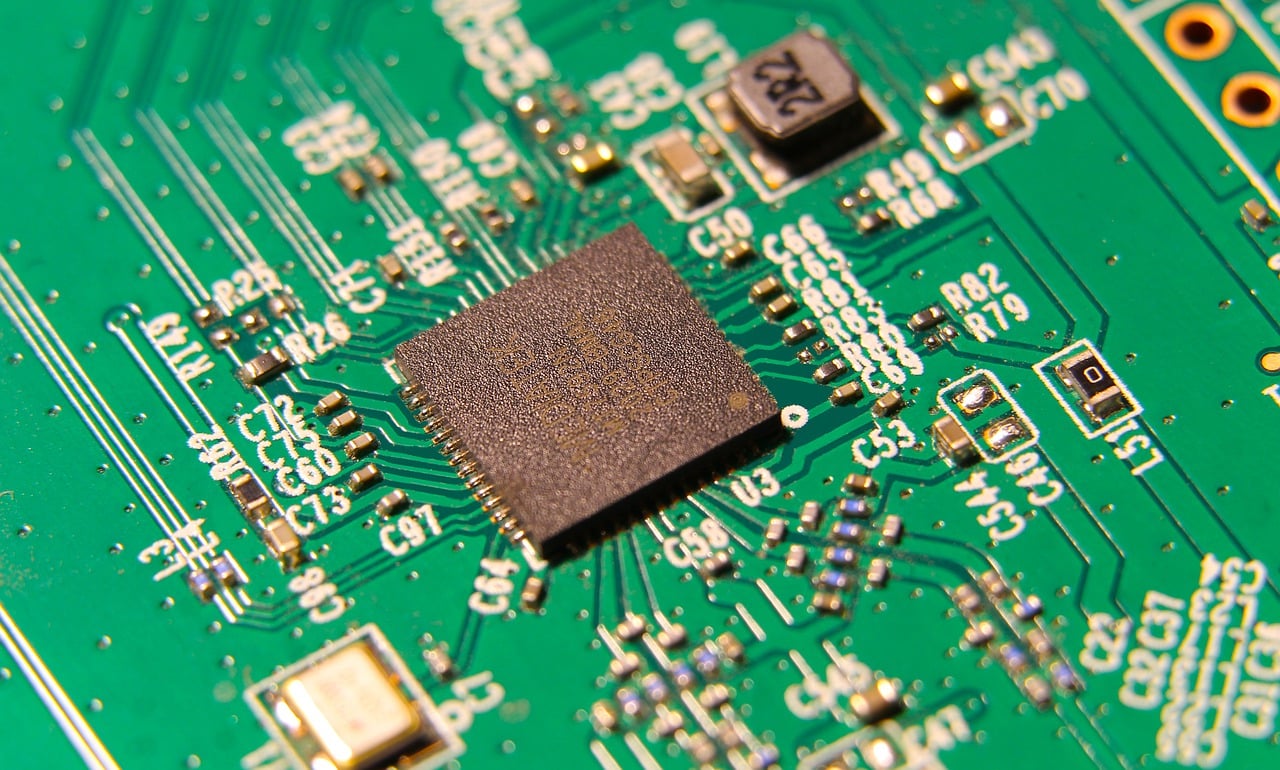
International Defense Collaborations
In today's interconnected world, the challenges to global security are more complex than ever. Nations are no longer able to tackle threats in isolation; instead, they must engage in to effectively address issues ranging from terrorism to cyber warfare. These partnerships not only enhance military capabilities but also foster a sense of unity among countries facing similar threats. Imagine a network of nations working together, sharing intelligence and resources, like a well-coordinated symphony where each instrument plays its part to create a harmonious defense strategy.
One of the most significant aspects of these collaborations is the sharing of advanced technologies and best practices. Countries are pooling their resources to develop cutting-edge defense systems, which often leads to innovations that might not have been possible independently. For instance, joint exercises and training programs help military personnel from different nations learn from each other, improving their operational effectiveness. This can be likened to a sports team, where players from diverse backgrounds come together to enhance their skills and strategies, ultimately leading to a stronger unit.
Moreover, international defense collaborations can significantly reduce costs. By sharing research and development expenses, countries can invest more in emerging technologies rather than duplicating efforts. For example, NATO has established various collaborative projects that allow member nations to benefit from shared technology, such as the Joint Strike Fighter program, which aims to create a versatile and advanced aircraft for multiple nations. This not only accelerates the development process but also ensures that the participating countries receive high-quality defense capabilities at a fraction of the cost.
However, these collaborations are not without their challenges. Differences in military doctrine, political agendas, and cultural perspectives can complicate joint operations. For instance, what works for one nation may not be suitable for another due to varying operational environments or strategic priorities. To mitigate these issues, nations must engage in open dialogues and establish clear communication channels. This is akin to navigating a ship through treacherous waters; without a reliable compass and a skilled crew, the journey can quickly become perilous.
As we look to the future, it is evident that international defense collaborations will play a crucial role in shaping global security. The rise of non-state actors and the increasing sophistication of cyber threats demand a united front. Countries must not only collaborate on military strategies but also on intelligence sharing, cybersecurity measures, and humanitarian efforts. By fostering partnerships that extend beyond mere military alliances, nations can create a more resilient defense posture that adapts to the ever-changing landscape of global threats.
In conclusion, the importance of international defense collaborations cannot be overstated. They represent a proactive approach to tackling the multifaceted challenges of modern warfare and security. As nations continue to strengthen their ties and share resources, we can expect to see a more integrated and effective global defense strategy, ultimately leading to a safer world for all.
- What are international defense collaborations?
These are partnerships between nations to enhance military capabilities, share resources, and tackle global security threats collectively. - Why are these collaborations important?
They allow countries to pool resources, share technology, and improve operational effectiveness, making them better equipped to handle complex security challenges. - What challenges do these collaborations face?
Diverse military doctrines, political agendas, and cultural differences can complicate joint operations, requiring effective communication and negotiation. - How do international collaborations impact costs?
By sharing research and development expenses, countries can reduce costs and invest more in emerging technologies.

Ethical Considerations in Defense Tech
The rapid advancement of technology in defense has opened up a Pandora's box of ethical dilemmas that cannot be ignored. As we integrate sophisticated systems like artificial intelligence and autonomous weapons into military operations, we must ask ourselves: at what cost? The implications of these technologies stretch far beyond the battlefield, touching on issues of morality, accountability, and human rights. The use of AI in warfare, for instance, raises profound questions about the role of human judgment in life-and-death decisions. Can we trust machines to make choices that determine the fate of soldiers and civilians alike?
One of the most pressing concerns is the development of autonomous weapons systems. These are machines capable of selecting and engaging targets without human intervention. While they promise increased efficiency and reduced risks to human soldiers, they also present significant ethical challenges. For example, if an autonomous drone mistakenly identifies a civilian as a threat and engages, who is held accountable? The operator? The manufacturer? Or does the responsibility lie with the machine itself? This ambiguity complicates the moral landscape of modern warfare.
Moreover, the integration of surveillance technologies into defense systems raises further ethical issues. Advanced surveillance tools can monitor vast areas, collect personal data, and track individuals in real-time. While these capabilities are crucial for national security, they can infringe upon civil liberties and privacy rights. Striking a balance between ensuring safety and protecting individual freedoms is a challenge that governments and societies must navigate carefully. Are we willing to sacrifice our privacy for the sake of security? This question becomes even more complicated when considering the potential for abuse of surveillance technologies by state actors.
In light of these complexities, it is essential to establish a framework for ethical decision-making in defense technology. This framework should include:
- Transparency: Clear communication about how technologies are used and the decision-making processes involved.
- Accountability: Establishing who is responsible for actions taken by autonomous systems.
- Human Oversight: Ensuring that human judgment remains a crucial part of military operations, especially in critical decisions.
- Public Engagement: Involving citizens in discussions about the implications of defense technologies and their ethical ramifications.
Ultimately, as we forge ahead into a future dominated by advanced defense technologies, we must remain vigilant about the ethical implications of our innovations. The decisions we make today will shape the moral landscape of warfare and defense for generations to come. It's not just about what we can do with technology, but what we should do. As we ponder these questions, it’s crucial to engage in open dialogues that include diverse perspectives, ensuring that our approach to defense tech aligns with our shared values as a society.
Q1: What are autonomous weapons systems?
A1: Autonomous weapons systems are military technologies that can select and engage targets without human intervention, raising ethical questions about accountability and decision-making.
Q2: How does surveillance technology impact civil liberties?
A2: Surveillance technology can infringe upon individual privacy rights, creating a tension between national security and personal freedoms.
Q3: Why is human oversight important in defense technology?
A3: Human oversight ensures that critical decisions, especially those involving life and death, are made with human judgment, reducing the risk of errors that machines might make.
Q4: What role does public engagement play in defense technology discussions?
A4: Public engagement fosters transparency and accountability, allowing citizens to voice their concerns and contribute to the ethical frameworks governing defense technologies.
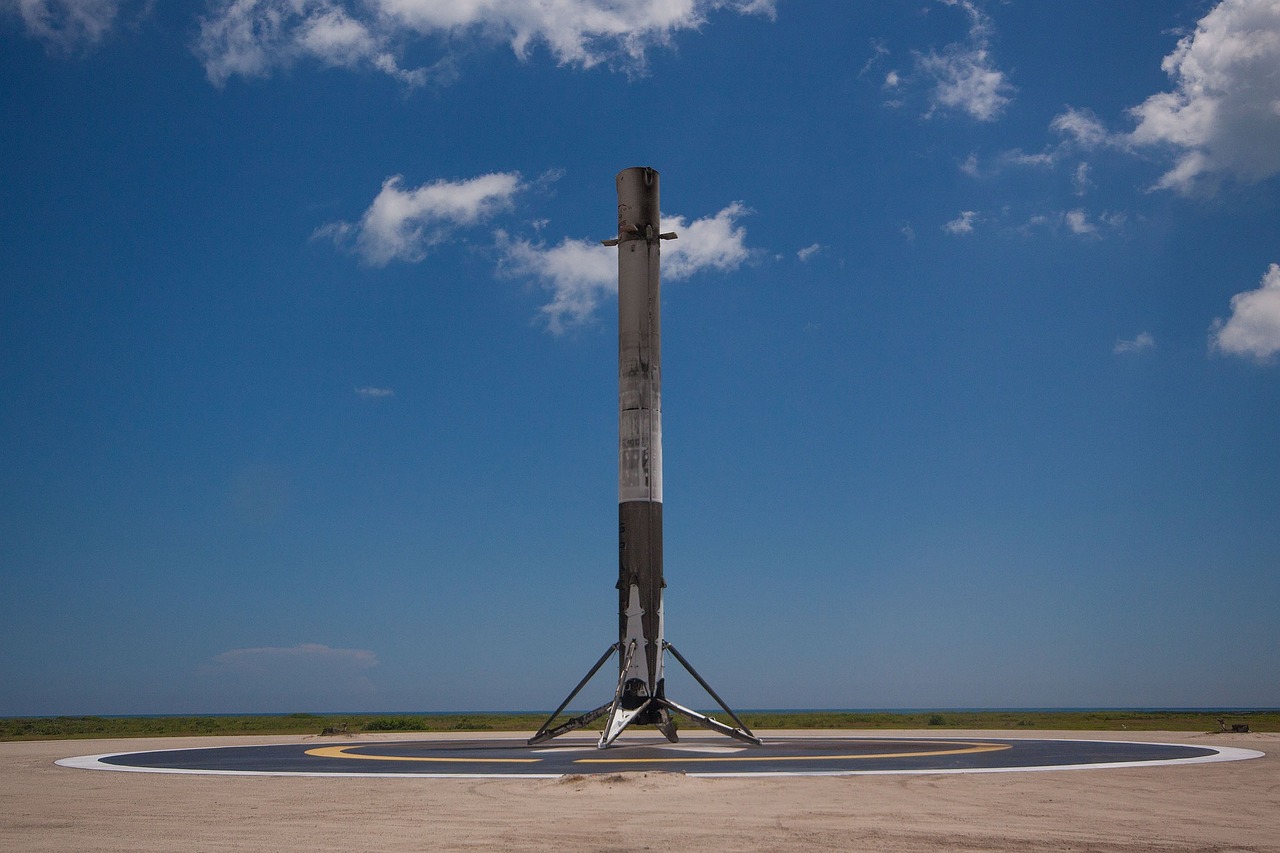
Autonomous Weapons Systems
In recent years, the rise of has sparked heated debates among policymakers, military strategists, and ethicists alike. These systems, capable of operating without direct human intervention, promise to revolutionize modern warfare. However, they also raise significant ethical dilemmas that cannot be ignored. Imagine a battlefield where machines make life-and-death decisions—sounds like science fiction, right? But this reality is closer than we think.
Autonomous weapons, often referred to as killer robots, can be equipped with advanced technologies such as artificial intelligence and machine learning. They can identify targets and execute attacks with minimal human oversight. While proponents argue that these systems can reduce the risk to human soldiers and enhance operational efficiency, critics warn of the potential for catastrophic consequences. What happens when a machine misidentifies a target? Or when a system is hacked and used against its creators? The implications are staggering.
One of the most contentious aspects of autonomous weapons is the question of accountability. If an autonomous system makes a mistake, who is responsible? Is it the programmer, the military commander, or the manufacturer? This ambiguity complicates the moral landscape of warfare. As we move forward, establishing clear guidelines and regulations will be crucial to ensure that these technologies are used ethically and responsibly.
To illustrate the complexity of these issues, consider the following table that outlines some of the key advantages and disadvantages of autonomous weapons systems:
| Advantages | Disadvantages |
|---|---|
| Reduced risk to human soldiers | Potential for misidentification of targets |
| Increased operational efficiency | Challenges in accountability and ethics |
| Ability to operate in dangerous environments | Risk of hacking and misuse |
As nations continue to develop and deploy these systems, the call for international regulations becomes increasingly urgent. The United Nations and various advocacy groups are pushing for a ban or strict regulations on autonomous weapons. They argue that allowing machines to decide who lives and dies is a step too far. But will governments heed this warning, or will the race for technological supremacy overshadow ethical concerns? Only time will tell.
In conclusion, while autonomous weapons systems offer tantalizing benefits in terms of efficiency and safety, the ethical implications are profound. As we stand on the brink of a new era in warfare, it is imperative that we engage in thoughtful dialogue and establish frameworks that prioritize human rights and accountability. After all, the future of warfare may not just be about winning battles but also about preserving our humanity.
- What are autonomous weapons systems? Autonomous weapons systems are military technologies that can operate without direct human control, making decisions about targeting and engagement.
- What are the ethical concerns surrounding these systems? Ethical concerns include accountability for mistakes, potential misuse, and the moral implications of allowing machines to make life-and-death decisions.
- Are there regulations in place for autonomous weapons? Currently, there are ongoing discussions at international levels, including the United Nations, about establishing regulations for the use of autonomous weapons.
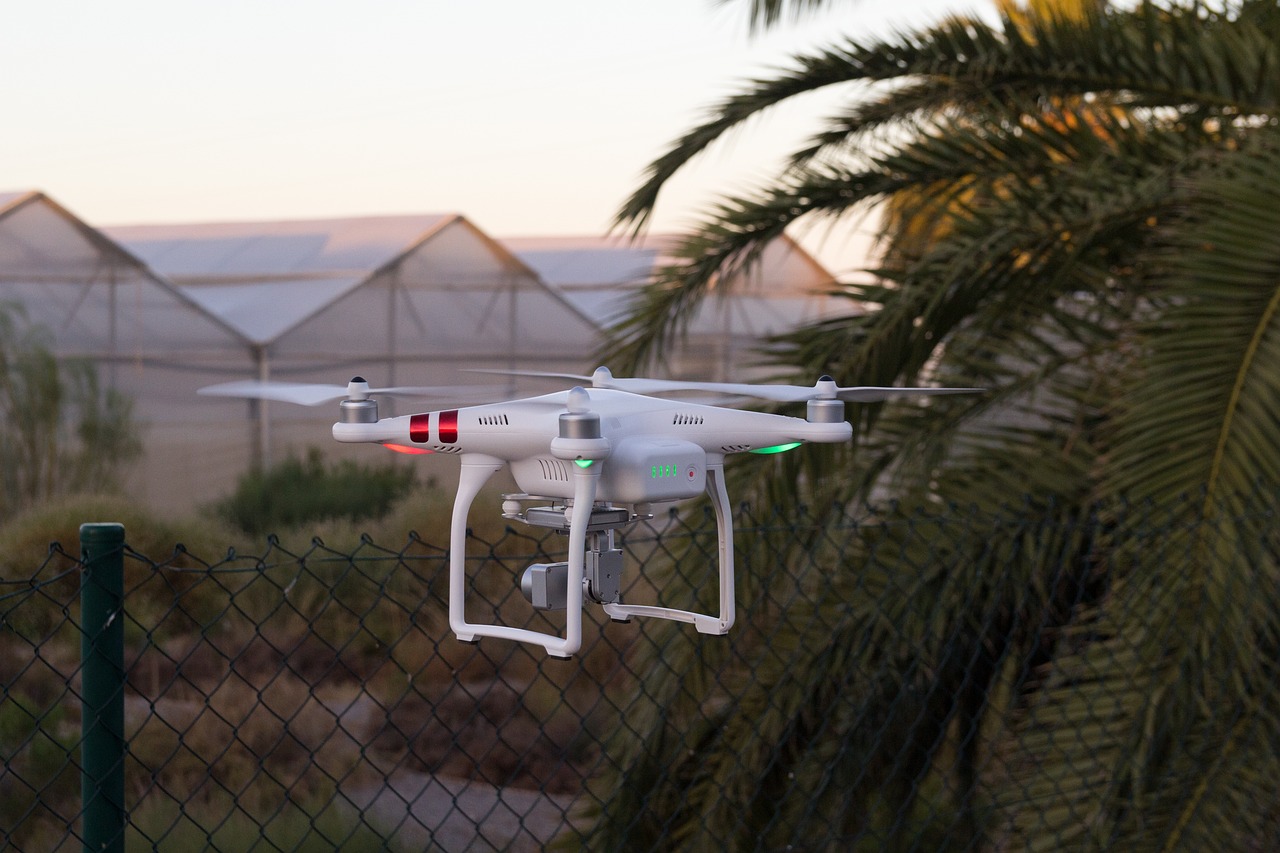
Privacy and Surveillance
The rapid advancement of defense technologies has brought about a complex web of challenges, particularly when it comes to . As nations enhance their military capabilities, the line between security and individual rights becomes increasingly blurred. Imagine living in a world where every move you make is monitored, not just by your government but by various entities using sophisticated surveillance technologies. This is not a scene from a dystopian novel; it's a reality that many are facing today.
With the deployment of advanced surveillance systems, governments argue that these technologies are essential for maintaining national security and preventing terrorist activities. However, the implications for civil liberties are profound. The question arises: how do we balance the need for security with the right to privacy? This dilemma is at the forefront of discussions surrounding defense technologies. For instance, the use of drones equipped with high-resolution cameras and facial recognition software raises significant concerns about invasion of privacy and the potential for abuse.
Moreover, the integration of artificial intelligence in surveillance systems allows for real-time data analysis and monitoring. While this can enhance security measures, it also poses risks of mass surveillance, where innocent citizens are subjected to scrutiny without any wrongdoing. The chilling effect of such monitoring can lead to self-censorship and a stifling of free expression. As we navigate this complex landscape, it's crucial to ask ourselves: are we sacrificing too much in the name of security?
To further illustrate the impact of surveillance technologies on privacy, consider the following table that outlines key surveillance technologies and their implications:
| Surveillance Technology | Implications for Privacy |
|---|---|
| Facial Recognition | Potential for misidentification and tracking of individuals without consent. |
| Drones | Increased capability for monitoring public and private spaces, raising concerns about overreach. |
| Mass Data Collection | Aggregation of personal data can lead to profiling and unauthorized use of information. |
As we delve deeper into the implications of these technologies, it's essential to foster a dialogue among policymakers, technologists, and the public. Engaging in conversations about ethical standards and regulations can help ensure that advancements in defense technologies do not come at the expense of our fundamental rights. The challenge lies in creating a framework that allows for effective security measures while also protecting individual privacy.
In conclusion, the intersection of privacy and surveillance in the context of defense technologies is a nuanced issue that requires careful consideration. As we move forward, it is vital to remain vigilant and advocate for policies that uphold our rights while addressing the legitimate security concerns of our time. After all, a society that prioritizes security over liberty risks losing both.
- What are the main concerns regarding surveillance technologies? The primary concerns include invasion of privacy, potential abuse of power, and the chilling effect on free expression.
- How does artificial intelligence impact surveillance? AI enhances surveillance capabilities through real-time data analysis but raises ethical questions about mass monitoring and consent.
- What steps can be taken to protect privacy in defense technologies? Implementing strict regulations, promoting transparency, and fostering public dialogue are crucial steps in protecting privacy rights.
Frequently Asked Questions
- What are the key emerging technologies in defense?
Emerging technologies such as artificial intelligence, robotics, and quantum computing are at the forefront of revolutionizing defense capabilities. These innovations enhance military strategies by enabling more efficient operations, improved decision-making, and advanced threat detection.
- How does cybersecurity impact defense technologies?
As defense systems become increasingly digitized, they are more vulnerable to cybersecurity threats. Protecting military networks and sensitive data is crucial, as cyberattacks can compromise national security. Defense organizations are implementing robust strategies to safeguard their systems against these evolving threats.
- What role does AI play in cyber defense?
AI is instrumental in detecting and responding to cyber threats. By analyzing vast amounts of data, AI can identify anomalies and potential attacks faster than human operators, thus enhancing the overall security of defense infrastructure.
- What are predictive analytics and its significance in defense?
Predictive analytics leverages historical data to forecast potential cyber threats. This technology enables defense organizations to anticipate risks and implement measures proactively, thereby strengthening their defensive posture against cyber incidents.
- What are automated response systems in cyber defense?
Automated response systems are designed to react to cyber incidents in real-time. While they offer the advantage of speed and efficiency, there are challenges regarding their limitations and the need for human oversight to ensure appropriate actions are taken.
- Why are international collaborations important in defense?
Global security challenges often transcend borders, making international collaborations essential. Such partnerships enhance the sharing of intelligence, resources, and technologies, which collectively strengthen defense capabilities and foster joint military operations.
- What ethical considerations arise from advanced defense technologies?
The integration of technologies like AI and autonomous systems in warfare raises significant ethical questions. Issues such as accountability, the potential for misuse, and the moral implications of automated decision-making in combat scenarios are hotly debated among policymakers and ethicists.
- What are the concerns surrounding autonomous weapons systems?
The development of autonomous weapons systems poses ethical dilemmas, particularly regarding accountability for actions taken by machines in warfare. The debate centers on whether machines can make moral decisions and who is responsible for their actions in conflict situations.
- How do advancements in surveillance technology affect privacy?
Advancements in surveillance technology can enhance national security but also raise concerns about civil liberties. Striking a balance between ensuring public safety and protecting individual privacy rights is a critical issue in the context of defense technologies.



